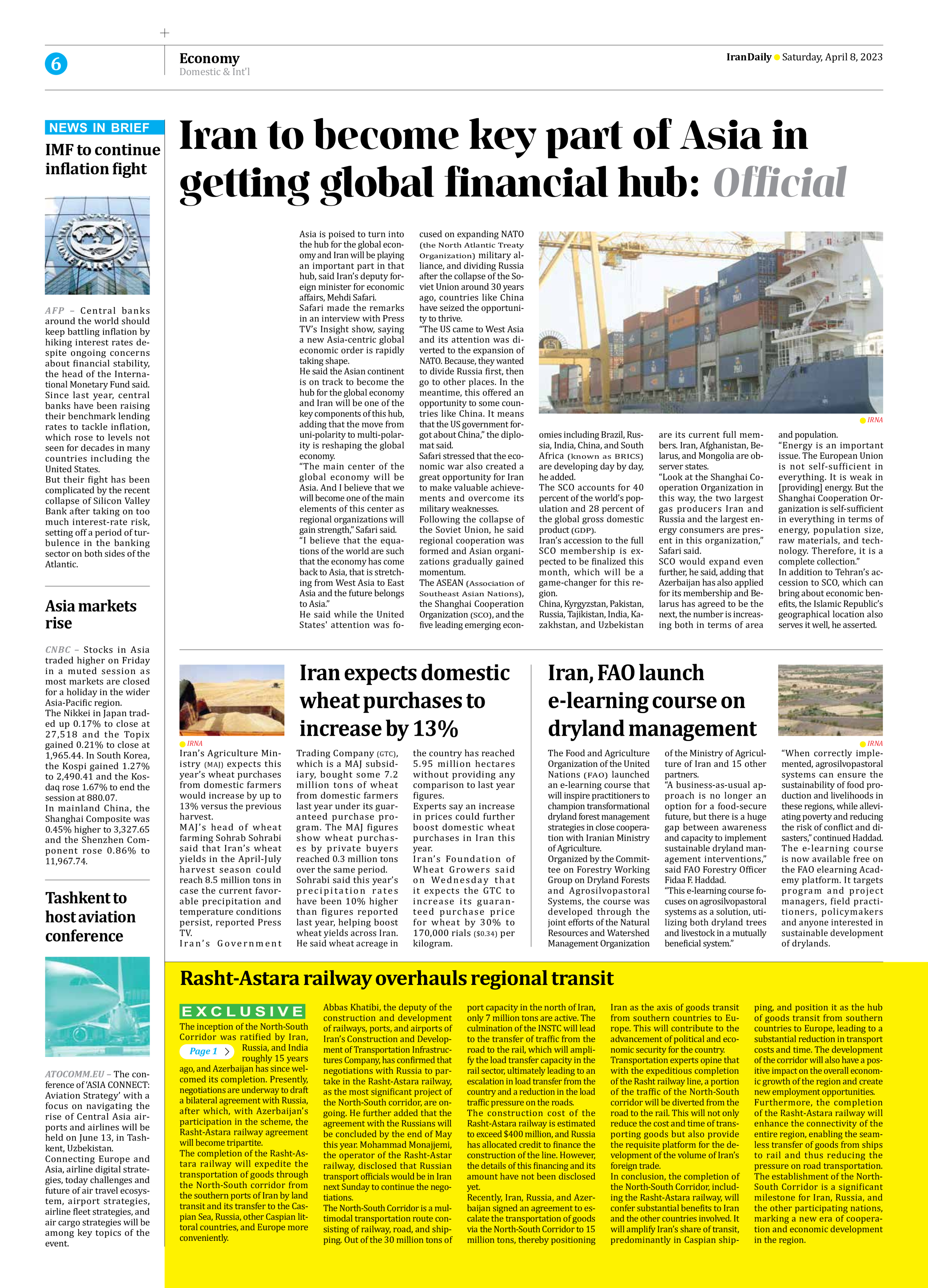
Rasht-Astara railway overhauls regional transit
Page 1
The inception of the North-South Corridor was ratified by Iran, Russia, and India roughly 15 years ago, and Azerbaijan has since welcomed its completion. Presently, negotiations are underway to draft a bilateral agreement with Russia, after which, with Azerbaijan’s participation in the scheme, the Rasht-Astara railway agreement will become tripartite.
The completion of the Rasht-Astara railway will expedite the transportation of goods through the North-South corridor from the southern ports of Iran by land transit and its transfer to the Caspian Sea, Russia, other Caspian littoral countries, and Europe more conveniently.
Abbas Khatibi, the deputy of the construction and development of railways, ports, and airports of Iran’s Construction and Development of Transportation Infrastructures Company, has confirmed that negotiations with Russia to partake in the Rasht-Astara railway, as the most significant project of the North-South corridor, are ongoing. He further added that the agreement with the Russians will be concluded by the end of May this year. Mohammad Monajjemi, the operator of the Rasht-Astar railway, disclosed that Russian transport officials would be in Iran next Sunday to continue the negotiations.
The North-South Corridor is a multimodal transportation route consisting of railway, road, and shipping. Out of the 30 million tons of port capacity in the north of Iran, only 7 million tons are active. The culmination of the INSTC will lead to the transfer of traffic from the road to the rail, which will amplify the load transfer capacity in the rail sector, ultimately leading to an escalation in load transfer from the country and a reduction in the load traffic pressure on the roads.
The construction cost of the Rasht-Astara railway is estimated to exceed $400 million, and Russia has allocated credit to finance the construction of the line. However, the details of this financing and its amount have not been disclosed yet.
Recently, Iran, Russia, and Azerbaijan signed an agreement to escalate the transportation of goods via the North-South Corridor to 15 million tons, thereby positioning Iran as the axis of goods transit from southern countries to Europe. This will contribute to the advancement of political and economic security for the country.
Transportation experts opine that with the expeditious completion of the Rasht railway line, a portion of the traffic of the North-South corridor will be diverted from the road to the rail. This will not only reduce the cost and time of transporting goods but also provide the requisite platform for the development of the volume of Iran’s foreign trade.
In conclusion, the completion of the North-South Corridor, including the Rasht-Astara railway, will confer substantial benefits to Iran and the other countries involved. It will amplify Iran’s share of transit, predominantly in Caspian shipping, and position it as the hub of goods transit from southern countries to Europe, leading to a substantial reduction in transport costs and time. The development of the corridor will also have a positive impact on the overall economic growth of the region and create new employment opportunities.
Furthermore, the completion of the Rasht-Astara railway will enhance the connectivity of the entire region, enabling the seamless transfer of goods from ships to rail and thus reducing the pressure on road transportation. The establishment of the North-South Corridor is a significant milestone for Iran, Russia, and the other participating nations, marking a new era of cooperation and economic development in the region.







